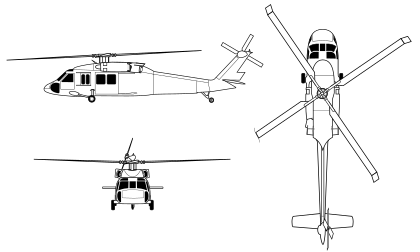The Influence of Sustainable Practices on the Future of Airplane Workflow and Emissions Decrease
As the air travel market encounters increasing analysis over its ecological impact, the fostering of lasting methods arises as an essential pathway towards future aircraft procedures and exhausts reduction. Developments in sustainable air travel fuels and developments in crossbreed propulsion innovations stand at the center of this makeover, appealing substantial decreases in greenhouse gas emissions.

Summary of Sustainable Practices
Lasting methods in airplane operations include a range of methods focused on decreasing ecological effect while preserving functional efficiency. These methods are vital in the aviation sector's commitment to reducing its carbon impact and adhering to international ecological criteria. Trick initiatives include optimizing trip paths to minimize fuel consumption, boosting maintenance methods to ensure airplane run at peak efficiency, and applying advanced technologies such as winglets and lightweight materials that improve the rules of aerodynamics.

Engaging and educating staff on sustainability techniques also play a vital function, cultivating a society of environmental duty within companies. In general, the integration of these lasting practices not only assists minimize exhausts yet also boosts the long-term viability of the air travel industry, ensuring it satisfies the needs of both clients and regulatory bodies while adding to international sustainability goals.
Ingenious Gas Alternatives
Many ingenious gas alternatives are arising as pivotal services to decrease the air travel industry's reliance on standard nonrenewable fuel sources. Among these alternatives, Sustainable Air travel Gas (SAFs) have actually gotten substantial attention due to their potential to lower lifecycle greenhouse gas discharges by up to 80% contrasted to traditional jet gas. SAFs are derived from numerous feedstocks, including waste oils, farming deposits, and also algae, making them a flexible option for the industry.
An additional encouraging alternative is hydrogen fuel, which, when utilized in fuel cells, creates just water vapor as a by-product. Furthermore, electrical propulsion systems are being checked out, leveraging battery technology to power airplane.
Finally, biofuels stemmed from biomass are being checked out, offering a renewable choice that can be blended with standard fuels. Jointly, these ingenious gas alternatives stand for a vital step toward achieving a lasting aviation environment, lining up with global emissions decrease targets and improving the sector's environmental stewardship.
Technical Advancements in Air Travel

Just how can technological developments improve the future of aviation? Developments such as electrical and hybrid propulsion systems are at the center, promising considerable decreases in fuel consumption and greenhouse gas emissions.
Moreover, the implementation of innovative materials, such as light-weight composites, adds to boosted the rules of aerodynamics and fuel performance. Making use of expert system and artificial intelligence in flight operations maximizes course planning and lowers fuel melt by enabling real-time changes based on weather condition and website traffic conditions. In addition, the development of autonomous and from another location piloted airplane systems stands to transform freight and passenger transport, possibly enhancing performance while minimizing human error.
Furthermore, lasting aviation innovations, consisting of advanced air traffic monitoring systems, can lower and simplify procedures congestion, causing reduced emissions during trip. These developments jointly represent a paradigm change in air travel, assuring a future where sustainability and functional efficiency are intertwined, thus supporting the industry's commitment to minimizing its ecological influence.

Regulatory Framework and Compliance
Due to the growing focus on ecological stewardship within the aeronautics industry, the regulatory framework governing airplane procedures is advancing to promote sustainable practices. content Regulatory bodies, such as the International Civil Aviation Organization (ICAO) and numerous national aviation authorities, are presenting strict guidelines focused on reducing emissions and boosting functional efficiency.
These guidelines frequently include the fostering of Sustainable Air travel Fuel (SAF), which has actually been recognized as a key element in achieving reduced carbon impacts. Furthermore, conformity with these regulations requires airlines to implement functional methods and sophisticated modern technologies, such as enhanced trip courses and boosted air website traffic management, to decrease fuel intake.
Furthermore, the enforcement of Bonuses exhausts trading schemes and carbon offsetting campaigns is becoming significantly prevalent, engaging airlines to keep an eye on and report their exhausts properly. Non-compliance can lead to substantial penalties, thus pressing drivers to prioritize sustainability in their company designs.
Eventually, the evolving regulative landscape not just drives innovation and financial investment in environment-friendly technologies yet additionally cultivates a culture of liability within the air travel sector. As these structures continue to develop, the concentrate on sustainable practices will be integral to achieving the market's long-lasting environmental objectives.
Future Fads in Airplane Procedures
As the aviation sector adapts to a significantly rigorous governing atmosphere, future trends in airplane procedures are established to focus on innovative solutions that even more improve sustainability and efficiency - uh 60. Trick growths will likely include the adoption of sophisticated air traffic management systems, which use real-time data and man-made knowledge to maximize trip courses, decreasing fuel usage and emissions
An additional substantial trend is the boosted assimilation of sustainable aeronautics fuels (SAFs) These options to conventional jet fuel, originated from sustainable sources, can significantly reduce lifecycle greenhouse gas exhausts. The sector's commitment to SAFs will likely increase as airline companies collaborate with fuel manufacturers to ensure schedule and cost-effectiveness.
Furthermore, the push towards electrification and hybrid propulsion systems is obtaining momentum. Emerging airplane designs will certainly integrate these innovations, using quieter and extra efficient procedures, specifically for short-haul flights.
Final Thought
The adoption of lasting air travel gas, paired with improvements in hybrid and electrical propulsion systems, is necessary for minimizing lifecycle greenhouse gas exhausts. Maximizing trip courses and accepting innovative modern click here for more technologies add to a quieter and a lot more eco pleasant aviation industry.
Advancements in sustainable aeronautics gas and advancements in hybrid propulsion innovations stand at the leading edge of this improvement, encouraging substantial reductions in greenhouse gas emissions.Countless cutting-edge fuel alternatives are arising as crucial remedies to lower the air travel market's reliance on traditional fossil gas - uh 60. Amongst these choices, Sustainable Aviation Gas (SAFs) have obtained substantial interest due to their potential to lower lifecycle greenhouse gas exhausts by up to 80% compared to conventional jet gas.One more substantial pattern is the enhanced integration of lasting air travel gas (SAFs) The adoption of sustainable air travel fuels, combined with developments in electrical and hybrid propulsion systems, is essential for decreasing lifecycle greenhouse gas emissions